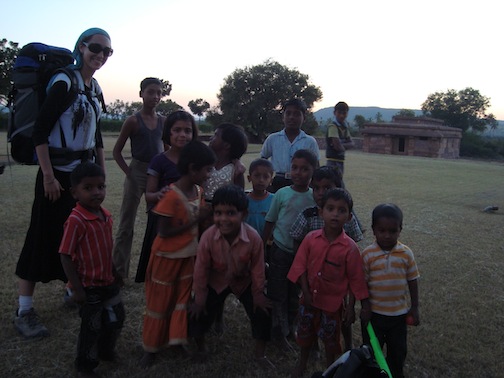Parshas Chayei Sarah: To Love a Child
After having a child, my whole perspective regarding children changed. Previously, I had not really understood the “maternal instinct.” I understood conceptually the idea that Hashem loves us like His children, but emotionally it meant nothing.
Akiva changed all of that.
I love Akiva so much that I can’t imagine being without him. If I thought he might get hurt, I would readily fling myself in harm’s way to save him. Even though the sleepless nights wear me down, he’s such a joy that the thought of ever being without him fills me with terror. Normally I’m a pretty chilled out mom (well, I’d have to be, I’m married to the Traveling Rabbi!) but I do have my moments.
So this year I read Chayei Sarah with a new perspective. It is in this week’s parsha that we learn that Sarah has died. The commentaries tell us that the Satan came to her in a vision and showed her Avraham sacrificing Yitzchak. Thinking her only son, her precious son, was dead, she died of a broken heart.
Suddenly I understand this in a new way. Suddenly I understand emotionally, not just conceptually, how she would be feeling. Losing my son (G-d forbid!) is the very worst thing I can imagine – worse even than dying myself (G-d forbid!). I can close my eyes and imagine the horror Sarah was feeling.
And I understand, too, how Hashem feels for us, His children. How He can forgive us everything, if only we return to Him. How He has to punish us for our sins, in order to teach us the right way to live, just as we punish our own children for their mistakes in order to teach them. Just like us, He does not want to have to hurt us – it’s only for our good! But unlike us, He does not have the human failings we all have. He is not selfish, He is not greedy, and He is never sleep deprived.
This new perspective fills me with a sort of awe. We are so lucky to be so well loved, if Hashem loves us just as much as I love Akiva. And how much more lucky we are because Hashem is capable of loving us even more than we are capable of loving our children, because His love is pure, without any of the human error in it.
Now we just have to grow up. We need to progress from being rebellious and cocky teenagers, ignoring our Father, and mature into parents ourselves, where we can suddenly appreciate what we put our own Father through as we experience the trials and tribulations ourselves.
This week, let us recognize the wisdom and love of Hashem and do our best to respond to Him in kind.
Shabbat Shalom.
Read more on Parshas Chayei Sarah: Isaac and Rebecca Teach us what Love Is
Read More







